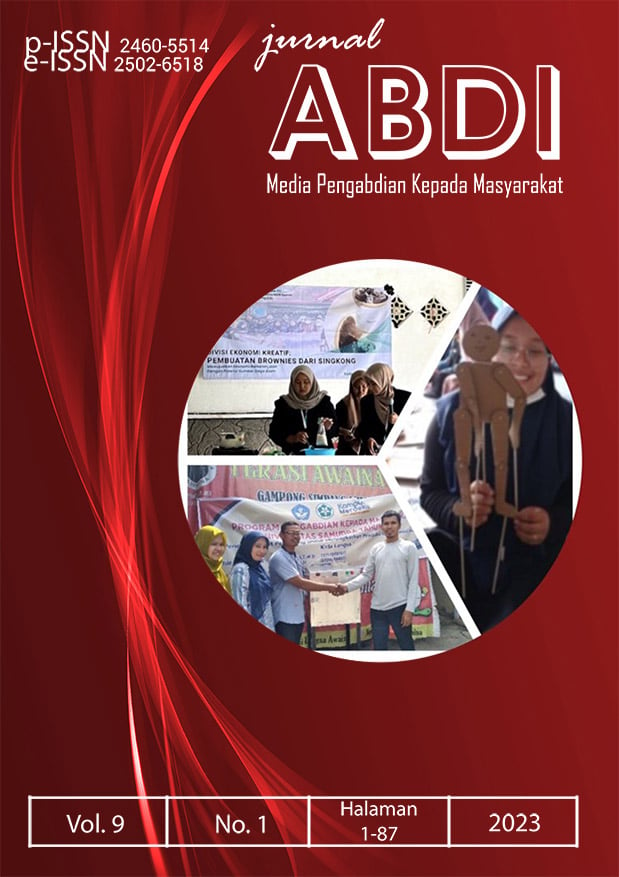Penguasaan Bahasa Asing Sebagai Komponen Penting Perwujudan Desa Wisata
DOI:
https://doi.org/10.26740/abdi.v9i1.19899Abstract
This article describes a series of Japanese language training activities given to the community of Claket Tourism Village, Pacet District, Mojokerto Regency as a form of community empowerment assistance. Community empowerment in this case is carried out to achieve the goal of developing a more resilient and sustainable Claket tourist village. The assistance for the development of the Claket tourist village is supported by the government's 2022 Matching Fund Funding program which is given to the Japanese Literature Study Program - Universitas 17 August 1945, Surabaya. Japanese language training was chosen as a solution for the tourist village community because one of the Matching Fund programs for the Japanese Literature Study Program is to carry the Japanese concept as a form of tourism concept in the hope of Japanese foreign tourists visiting. Japanese language training materials are adapted to the concept of tourism linguistic material including greetings, expressions, introductions, daily life about food and drinks, surrounding objects & natural objects, means of transportation, names of related jobs, shopping activities, and ways of traveling. tour. This Japanese language training material is given because it is close to people's daily lives which can be used for communication with Japanese tourists so that tourists feel at home and always visit on an ongoing basis. The methods used in the training include participant observation and demonstration methods, because the active involvement of trainees is seen as very important to the success of the ultimate goal of this training.
Keywords: Tourist village, Foreign Language Mastery, and Participatory Training
Downloads
Downloads
Published
Issue
Section
License
Copyright (c) 2023 Jurnal ABDI: Media Pengabdian Kepada Masyarakat

This work is licensed under a Creative Commons Attribution 4.0 International License.
 Abstract views: 206
,
Abstract views: 206
, PDF Downloads: 225
PDF Downloads: 225




